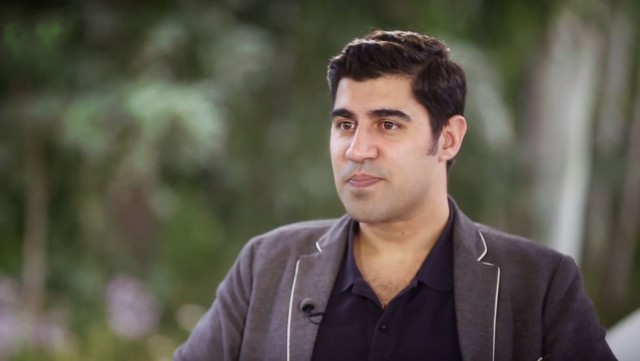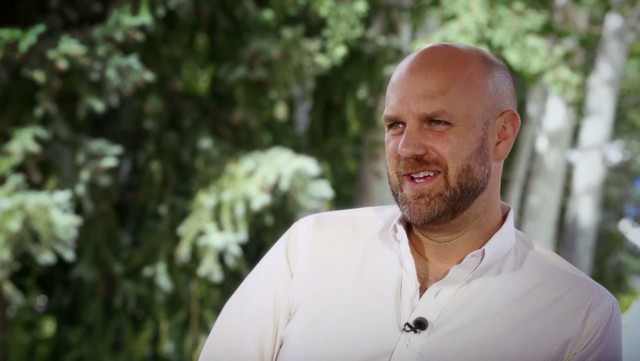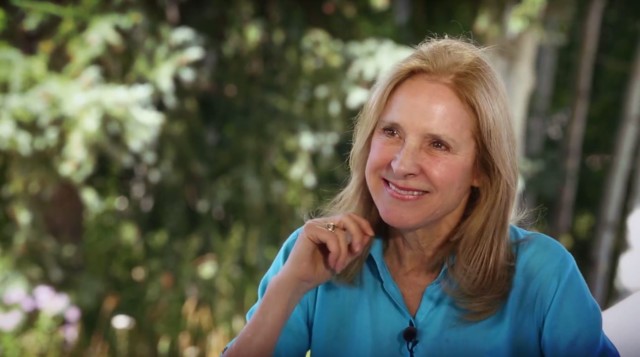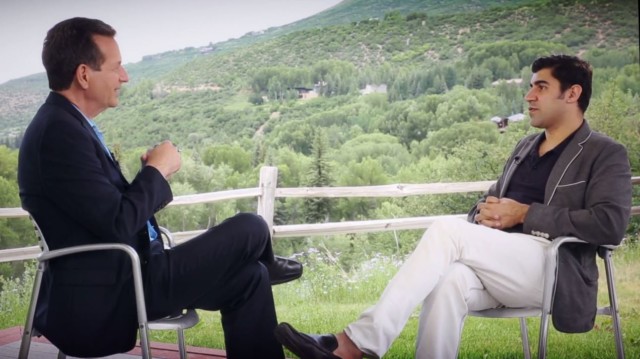In this tech-driven world, some say human connections are a dying art. But, perhaps, if we adapt, grow and change with the times, human connections can become even stronger.
This week on Full Frame, we talk with some of the world’s brightest minds to discuss the importance of coming together and how human connections make a difference.
Parag Khanna: Globally connected

International relations expert Parag Khanna talks about a world connected by more than borders.
Parag Khanna is an accomplished traveler and world explorer; he’s visited more than 100 countries on all continents. He’s a best-selling author whose recent book, Connectography: Mapping the Future of Global Civilization, explores megacities, emerging global networks, and the shifting power dynamics of our planet.
Khanna is a senior research fellow at the Lee Kuan Yew School of Public Policy at the National University of Singapore. Born in India, he is also the managing partner of Hybrid Reality, a boutique geostrategic advisory firm.
Parag Khana recently sat down with Mike Walter at the Aspen Ideas Festival, one of the largest annual gatherings of thought leaders and innovators, and had a conversation about the crucial nature of being globally connected.
Chris Plutte: Creating global citizens

Global Nomads Group Founder Chris Plutte talks about connecting students around the globe.
It’s said that communication and compassion are key to successful relationships. Chris Plutte believes those relationships should start early. He’s one of the original founders of the international non-profit Global Nomads Group. It works to foster dialogue and understanding among the world’s youth.
Global Nomads empowers students, worldwide, using classroom curriculum and innovative technologies and aims to serve as a driving force for awareness. GNG hopes to break the barriers of cultural misconceptions and provide a heightened appreciation and comprehension of the world – helping young people become “global citizens” at a young age.
Chris Plutte recently sat down with Mike Walter at the Aspen Ideas Festival to talk about the challenges of bringing people together and the importance of cross-cultural exchange, connection and global student engagement, not only to benefit education, but for diplomacy and the global economy as well.
Helen Fisher: Looking for a mate

Biological Anthropologist Dr. Helen Fisher talks about how our relationships stay connected.
Biological Anthropologist Dr. Helen Fisher is a world-renowned researcher and author on human relationships. Fisher’s six books examine the evolution, biology, and psychology of human sexuality, divorce, biologically based personality styles, the neural chemistry of romantic love, and why we fall in love with one person rather than another.
Dr. Fisher has also examined marriage and divorce in over 80 societies, adultery in more than 42 cultures, patterns of monogamy and desertion in birds and mammals, and gender differences in the brain and behavior. Her best-selling, recently revised and updated book, The Anatomy of Love, is a contemporary classic on love and the brain, and her two TED talks about human connections have been viewed over twelve million times.
Dr. Fisher recently sat down with Mike Walter at the Aspen Ideas Festival to speak more about why and how we connect with one another and the intricacies of human relationships.
Mehera Blum: Fabric of love

Handbag maker, Mehera Blum, pays tribute to her late mother’s artwork.
Mehera Blum’s career had been carved out as a professional and successful actress. But, in 2005 she was struck with a life-threatening disease. While healing, Blum started a hobby creating handbags. This hobby quickly turned into a successful business, called Blumera. Some of her first clients were celebrities like Eva Mendes and Jessica Alba.
In 2015 Blum’s mother, Laurie, passed away after a long battle with cancer. Before she passed, mother and daughter began a collaboration to incorporate her mom’s paintings into Mehera’s handbags – creating a lasting connection that pays tribute to Mehera’s mother and the life lessons she instilled in her daughter.
Connect with Blumera on Facebook
 CGTN America
CGTN America Best-selling author Parag Khanna talks about nations being globally connected.
Best-selling author Parag Khanna talks about nations being globally connected.
